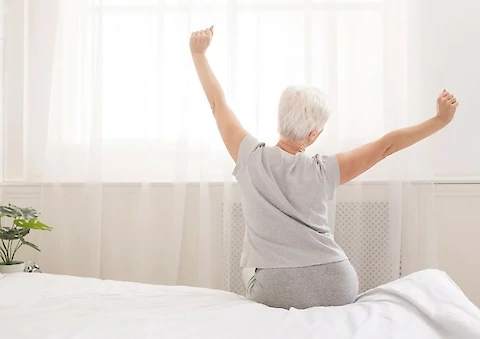
No matter our age, our days are better when we get good sleep at night. Getting enough rest boosts the immune system, improves brain function, and keeps us in good spirits. For seniors especially, good sleep hygiene is critical for maintaining a healthy and fulfilling life. If insomnia is making it difficult to sleep at night, These four factors are important to consider:
*If Insomnia symptoms are severe, make sure to check in with your primary healthcare provider or one of these sleep specialists in the Milford, Stoughton, and Franklin areas.*
Medication
There are several frequently taken medications that may cause insomnia as a side effect. The can include antidepressants, over-the-counter nasal decongestants, and medications used to treat blood pressure, pain, and cognitive decline just to name a few. Make sure to talk to a pharmacist and primary care provider about any side effects that you are experiencing. This conversation is critical for identifying a single medication or interaction between different medications that may be the cause of insomnia.
Health Conditions
Many health conditions are known to disrupt healthy patterns of sleep. A few examples include the early signs of cognitive decline, chronic pain, neuropathy, and respiratory diseases. It’s important to check in with our bodies and attempt to identify what we may be feeling that is preventing us from getting good rest.
Keeping a log to track and identify the sensations that are keeping us awake can help provide some indication of the potential causes. Ask yourself questions like; Do I feel pain and is it achy, sharp, or does it feel like pins and needles? Am I experiencing racing thoughts? Do I feel anxious? Am I snoring? How loud? Am I waking up to use the restroom frequently? How many times a night? The more information you can share with healthcare professionals the more likely you are to find relief.
Lifestyle
When we feel better, we sleep better. Make sure to eat well, stay active, challenge yourself mentally, and socialize with friends and family during the day. Also, be mindful of what you consume in the evenings. Be sure to avoid caffeine, smoking, and alcohol 2-3 hours before bed.
Also, make sure that your bedroom is a comfortable environment that enables you to get rest. Think about your ideal setting for sleep and try to emulate that in your space with dim to no light, appropriate noise levels, and temperature. Make sure to turn off the television and try to avoid electronics 30 minutes before bed.
Mental Health
Our mental health is just as critical as our physical health and the amount of sleep that we get can affect both. Depression and anxiety are experienced by many and are a very common cause of insomnia. While there are many treatment options for these conditions to consider, make sure to be open and transparent with your primary care provider. They can help recommend a custom plan to help you get better sleep at night and more comfortable during the day.
All in all, we spend 33% percent of our daily lives asleep and that alone is reason enough to make sure that time is restful. But if there are factors that are contributing to an inability to maintain healthy sleep patterns, the Senior Helpers team serving the Milford, Stoughton, and Franklin areas is here to help. Professional caregivers can help you sleep better at night by making your days easier. Reach out to learn more.